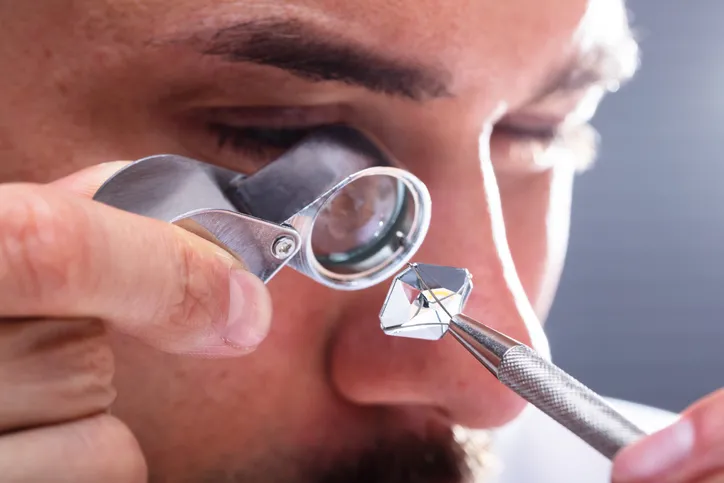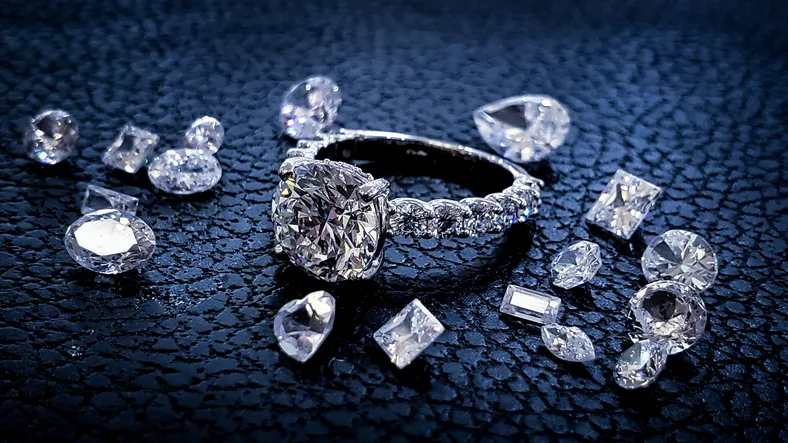
Published: Thursday, August 16th, 2024
Are you curious about how pawn shops like Value Pawn & Jewelry assess the worth of your jewelry? You're in luck! We're here to explore the disparities between jewelry appraisals and jewelry evaluations, helping you understand when each is necessary to gauge the value of your treasures before you pawn or sell your items.
What’s The Difference?

Appraisals and evaluations serve different purposes and yield different values for the same jewelry piece. Here’s why:
Jewelry appraisals - cater primarily to insurance requirements, with jewelry appraisers estimating the approximate cost of replacing jewelry.
Appraisals are like a safety net. Insurance companies use a professional jewelry appraiser to determine how much they can pay you if you open an insurance claim due to theft or damage. An appraisal may also be required for tax purposes. They are often called “insurance appraisals,” or “jewelry appraisals” done by an appraisal service.
The value resulting from a jewelry appraisal does not consider the true value, or market value and, therefore, does not reflect how much the piece can be sold for.
A pawn shop will not conduct a jewelry appraisal themselves. Instead, the appraisal will be conducted by a certified professional outside of a pawn shop. It’s also important to note that the Federal Trade Commission (FTC) has regulations for appraisal results, so seeking the assistance of a third-party specialist is crucial to ensure the pawn shop is complying with these regulations.
Jewelry evaluations - are based on the item's actual market value or real-world resale worth.
Evaluations give you a solid estimate of what your item could fetch in the market. It's what someone is willing to pay for your jewelry when purchasing it second-hand. The evaluation will reflect the jewelry item’s market value and thus determine how much the pawn shop will be able to resell the item for in-store. As opposed to an appraisal, jewelry evaluations at a pawn shop are conducted by the pawnbroker. Visit the link below to get an evaluation.
What Are the Criteria Examined During a Jewelry Evaluation?
Visual Inspection: Pawnbrokers examine the jewelry's visual characteristics, including design, craftsmanship, and overall condition. They will look for any signs of wear and tear, damage, or alterations that may affect its value.
Material Assessment: Pawnbrokers assess the materials used in the jewelry, such as the type and purity of metals (e.g. gold, silver) and the quality of gemstones (e.g. diamonds, rubies). They may use tools like magnifiers or electronic testers to verify the authenticity and quality of these materials.
Market Value: Pawnbrokers consider the current market demand and trends for similar jewelry pieces. They may consult pricing guides, online marketplaces, or their own experience to estimate how much customers are willing to pay for the item.
Negotiation: Ultimately, the value of the jewelry is subject to negotiation between the pawnbroker and the customer. Factors such as the urgency of the customer's need for cash, the pawn shop's inventory, and the item's condition can influence the final agreed-upon price.
Now You Know the Difference Between Jewelry Appraisals Vs. Jewelry Evaluations

The benefits of pawning or selling jewelry at a pawn shop is clear: immediate cash without the hassle of reselling through other channels. So, whether you're looking to unlock the value of your jewelry or snag a great deal, visit a Value Pawn & Jewelry location near you for a professional evaluation today!


